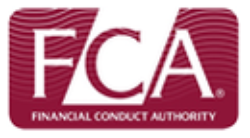
Regulator
Financial Conduct Authority (FCA)

http://www.fca.org.uk/
FCA Head Office
25 The North Colonnade, London E14 5HS, UK
Switchboard: 020 7066 1000
ORIGINS
Date: April 1st, 2013
Founding text: Financial Services Act 2012
INTERNAL STRUCTURE
Board
The FCA Board is made up of executive and non-executive members.
The Board has several committees to which it delegates certain functions / powers, which are:
- Audit Committee
- Risk Committee
- Remuneration Committee
- Oversight Committee
- Regulatory Decisions Committee
http://fca.org.uk/about/structure/committees
Executive Committees
- Executive Committee: the Executive Committee is the primary executive decision making body of the FCA and is responsible for the operations of the organisation, including policy decisions, regulatory issues and more general operational matters.
- Executive Regulatory Issues Committee: the Executive Regulatory Issues Committee is responsible for making decisions on how to act on prominent issues escalated from divisions across the organisation, including Markets, Authorisations, Supervision and Enforcement, within the FCA’s current remit.
- Policy Steering Committee: the Policy Steering Committee's responsibilities involve maintaining oversight of all FCA policy initiatives and overseeing draft guidance for consultation. It discusses policies at an early stage and provides senior level input into their development.
- Executive Operations Committee: the Executive Operations Committee is chaired by David Godfrey and is responsible for our internal operations, including finance, people, accommodation, IT, internal risk management and business continuity.
- Executive Diversity Committee: the Executive Diversity Committee the FCA's internal and external diversity agenda, contributing to the FCA being an employer of choice and a more effective regulator. The committee also provides direction and makes decisions on diversity-related matters that affect the organisation, and champions diversity in the FCA.
http://fca.org.uk/about/structure/executive-committee
President
The Chairman has no executive responsibility for the day-to-day running of the FCA. The key responsibilities of the Chairman are:
- establish and develop an effective Board
- lead the Board as a team
- plan and manage the Board’s business
- establish priorities for the FCA
- maintain and develop a productive relationship with the FCA Chief Executive, for whose recruitment he is responsible
- with the Chief Executive, lead the communication of FCA policies with a wide range of constituencies
- represent the FCA on particular national and international financial institutions
- establish and maintain high-level contacts with the most important financial institutions worldwide
- act as an accountability focus for the FCA, chairing its annual and public meeting, giving evidence to select committees, and writing to the Chancellor (if needed) on the most significant issues arising under the formal exchange of letters of December 2001
- represent the FCA in the most senior meetings of the Tripartite Standing Committee, alongside the Chancellor of the Exchequer and the Governor of the Bank of England.
Chief Executive
The Chief Executive is responsible for implementing the strategy agreed by the Board, in whose formulation he will have played a major part. He has the executive responsibility for the FCA’s business under authority delegated to him by the FCA Board.
The key responsibilities of the Chief Executive are:
- reporting regularly to the Board with appropriate, timely and quality information so the Board can discharge its responsibilities effectively
- informing and consulting the Chairman on all matters of significance to the Board so that the Chairman and Board can properly discharge their responsibilities
- developing and delivering the strategic objectives agreed with the Board
- recommending to the Board significant operational changes and major capital expenditures where these are beyond his delegated authority
- assigning responsibilities clearly to senior management and overseeing the establishment of effective risk management and control systems
- recruiting, developing and retaining talented people to work at the FCA; and, in particular, establishing a strong management team which is fairly and fully evaluated
- communicating throughout the FCA the strategic objectives and the values of the FCA agreed with the Board, ensuring that these are achieved in practice
- sharing with the Chairman and with other members of the FCA senior management the responsibility for communicating the FCA’s messages externally
- representing the FCA on selected international financial institutions
All FCA staff, other than the Chairman’s immediate staff and the Company Secretary, ultimately report to the Chief Executive.
BUDGET
The FCA is funded entirely by the firms that it regulates, through charging them fees to carry out their financial activities. How much they pay is determined by what type of business they are and what activities they carry out.
The FCA is accountable to the Treasury – which is responsible for the UK’s financial system – and Parliament. However, we’re an independent body and we do not receive any funding from the Government.
The FCA levies two types of fee:
- application fees, payable when your firm seeks authorisation from us
- annual (periodic) fees, payable each year.
The FCA also charges fees when one firm seeks to change its authorised permissions (Variations of Permission). These are normally charged at half the appropriate application fee.
As well as the FCA, we collect fees and levies for:
- Prudential Regulation Authority (PRA)
- Financial Ombudsman Service (ombudsman service)
- Financial Services Compensation Scheme (FSCS)
- Money Advice Service (MAS) – MAS was formerly known as the Consumer Finance Education Body (CFEB).
More about the FCA fees raising and annual fees cycle.
MISSIONS
The FCA wants consumers to be able to trust that the firms it regulates have their best interests at heart by providing them with appropriate products and services.
To achieve this the FCA has three objectives, set out for us in the Financial Services Act 2012:
- Protect consumers: the FCA secures an appropriate degree of protection for consumers.
- Protect financial markets: the FCA protects and enhances the integrity of the UK financial system.
- Promote competition: the FCA promotes effective competition in the interests of consumers.
The FCA has a proportionate approach, prioritising its work on the areas and firms that pose a higher risk to its objectives. (Find out more).
A large part of the FCA's work is to implement, supervise and enforce EU and international standards and regulations in the UK. (Find out more).
CHECKS ON THE INSTITUTION
The FCA is an independent financial regulator, accountable to the Treasury and, through it, to Parliament.
Complaints Commissioner : the FCA have set up arrangements, as required by the FSMA, for investigating complaints made against them. Complaints may be made by anyone directly affected by their actions or inaction - that is, regulated firms, individual employees of firms, listed companies, consumers etc.
Upper Tribunal (Tax and Chancery Chamber): where disagreements arise between the FCA and firms or individuals about the FCA’s regulatory decisions, the matter can be referred to the Upper Tribunal (Tax and Chancery Chamber). The Upper Tribunal is an independent judicial body established by the Tribunals, Courts and Enforcement Act 2007.
FCA Statutory Panels:
- Financial Services Consumer Panel monitors how far the FCA fulfils its statutory objectives in relation to consumers. It is independent and free to publish its views on the FCA's work and to commission research on consumers’ views.
- Smaller Business Practitioner Panel represents smaller regulated firms, who may otherwise not have a strong voice in policy making.
- Markets Practitioner Panel provides the FCA with external and independent input from the point of view of financial market participants.
- Practitioner Panel provides the FCA with external and independent input from the point of view of the industry as a whole.
Listing Authority Advisory Panel: they advise the FCA on policy issues that affect issuers of securities, and on policy regulation proposals from the FCA listings function.
History of the FCA
Before the FCA
In 1997 the Chancellor of the Exchequer announced reforms to financial services regulation in the UK. As part of those reforms the Financial Services Authority (FSA) was created from the Securities and Investments Board.
The Financial Services Authority (FSA) took over responsibility for:
- banking supervision from the Bank of England
- listing authority from the London Stock Exchange
- investment services regulation
After 1997 the Government gave the Financial Services Authority (FSA) additional responsibilities including:
- mortgage and general insurance business regulation
- authority to take action to prevent market abuse
The FSA has now become two separate regulatory authorities:
To read more about FSA (archived versions of the FSA site are available at the National Archives.
Why change the FSA to the FCA?
In the wake of the financial crisis, the Financial Services Act of 2012 set out a new system for regulating financial services in order to protect and improve the UK’s economy.
The purpose is to make sure markets work well so that consumers get a fair deal by:
- maintaining and ensuring the integrity of the market
- regulating financial services firms so that they give consumers a fair deal
- ensuring the financial services market is competitive
The Prudential Regulation Authority (PRA)
The PRA is part of the new system for regulating financial services in the UK. The PRA works alongside FCA and is responsible for the prudential supervision and regulation of banks, building societies, credit unions, insurers and investment firms.
Read more about FCA.
Sources:
http://www.fca.org.uk/
http://www.fsa.gov.uk/
http://webarchive.nationalarchives.gov.uk/*/http:/www.fsa.gov.uk/
http://www.legislation.gov.uk/ukpga/2012/21/contents/enacted

your comment